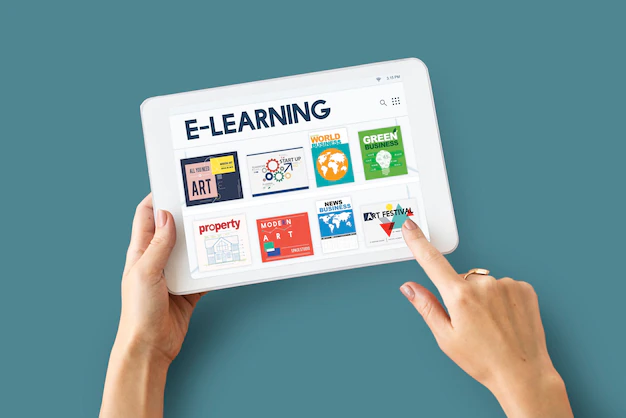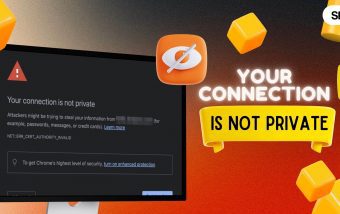How To Know If Someone Blocked You On iMessage? 5 Secret Hacks!
Apr 16, 2025

Apr 16, 2025

Apr 16, 2025

Apr 15, 2025

Apr 11, 2025

Apr 11, 2025

Apr 11, 2025

Apr 08, 2025

Mar 29, 2025
Sorry, but nothing matched your search "". Please try again with some different keywords.


The landscape of education has been dramatically reshaped in recent years, with online learning becoming a central pillar in the pursuit of knowledge.
This shift has brought with it a need for tools and techniques that maximize the effectiveness and efficiency of online education. From managing online homework to facilitating interactive learning sessions, the right tools can significantly enhance the educational experience.
The efficacy of learning online is getting increased with time, thanks to the advantages of online learning. It has enabled better learning opportunities for people from diverse work cultures. Online learning is highly interesting and, most importantly, easy due to the various tools. However, let us understand your advantages with online learning in general before we seep deeper into learning about online tools.
There are diverse benefits of online learning that an individual finds in a virtual classroom. But the most advantageous one is flexibility. If you take an online course, You can easily study them at a suitable time, and there is no worry.
Offline education is expensive, and it is going to be more expensive in the future. But with the help of online classes, you can get access to the best tutors, and that too in the least possible time.
Apart from this, there are other advantages of online learning, including more free time, increased variety of courses, opportunities for career advancement, increased collaboration, personalized education, better time management skills, immediate feedback, and others. In a nutshell, the online learning mode far exceeds the traditional learning approach.
In this article, we will explore some of the best tools available for optimizing online education, ensuring that students and educators alike can reap the full benefits of this digital revolution.

At the heart of online education are Learning Management Systems (LMS) like Canvas, Blackboard, and Moodle. These platforms provide an integrated environment where educators can upload course materials, conduct assessments, and interact with students. They are especially effective for organizing and distributing online chemistry homework and other assignments. Features like grade books, discussion forums, and personalized feedback mechanisms make these systems indispensable in the online learning landscape.
Tools like Zoom, Microsoft Teams, and Google Meet have become essential in the virtual classroom. They facilitate live interactions between teachers and students, replicating the dynamics of a physical classroom. These platforms support features like breakout rooms, screen sharing, and interactive whiteboards, making them ideal for collaborative projects and group discussions.
Platforms like Khan Academy, Coursera, and edX offer a wide range of interactive courses. These platforms use a combination of videos, quizzes, and interactive exercises to create a more engaging learning experience. They are particularly useful for subjects that require a lot of practice, such as mathematics or languages.
Access to a wide range of digital resources is crucial for effective online learning. Libraries like JSTOR or Google Scholar provide students and educators with access to a plethora of academic papers, articles, and books. Additionally, websites like Project Gutenberg offer free access to thousands of classic texts, which can be an invaluable resource for literature students.
There is a myriad of educational apps available that cater to specific needs. For example, tools like Grammarly can help improve writing skills, while platforms like Duolingo are excellent for language learning. For STEM subjects, apps like Wolfram Alpha or Desmos can assist in solving complex equations and visualizing data.
Tools like Google Drive, Microsoft OneDrive, and Dropbox facilitate the sharing and collaboration of documents and resources. They are essential for group projects and for submitting assignments. Task management tools like Trello or Asana can also help students organize their workload and manage deadlines effectively.
Adaptive learning software like DreamBox or Smart Sparrow customizes the learning experience based on the student’s progress and understanding. These tools adjust the difficulty level and types of questions in real time, providing a tailored educational experience that can accelerate learning.
Tools like Turnitin and Grammarly help check plagiarism and grammatical accuracy and provide valuable feedback that can improve student work. Other assessment tools like Quizlet or Kahoot make the process of learning and revision more interactive and fun.
For subjects like chemistry or physics, virtual labs like Labster or PhET Interactive Simulations allow experiments to be conducted in a virtual environment. This is particularly useful for online chemistry courses where hands-on lab experience is crucial.
Platforms like Discord or Slack can create a community feel, allowing students to interact, share resources, and support each other. These tools can be especially beneficial for creating study groups or for peer-to-peer learning.
Different studies offer the observations that online tools have been extremely beneficial as they benefit the learning process online. This section tries to understand how an individual can enhance the learning process.
Digital videos undoubtedly witnessed wide-scale popularity as they provide both convenience and versatility. The videos have greatly benefited the students across various learning capabilities. They have turned out to be an asset for educational institutes, students, and teachers.
The efficiency in learning is typically determined by time, money, and resources. It is indeed crucial for obtaining the desired results. It denotes that the process of learning has undoubtedly been enhanced with the help of online tools. Ultimately, it has benefitted both productivity and education.
Virtual reality is a new technology. It has indeed taken the world by storm. According to a study, the students can learn 10% of what they read. At the same time, they learn or retain 20% of what they hear. Virtual reality has been an asset as it helps the physically disabled. With the help of gadgets like the headset, these challenged students find themselves closest to the world of learning as they update themselves with time.
Not only this, but the content industry stakeholders are also extensively using VRs (virtual reality) to focus mainly on history and science courses.
The best advantage an individual can reap from the tools is flexible learning. If a student has video content, the individual can look at the video repeatedly until the entire concept is completely understood. It also denotes that the individual can look at the videos to comprehend the concept fully. It can help them reach closer to understanding the subject matter with ease.
Finally, with online platforms, the students get access to the valuable inputs of the most advanced lesson plans. It helps them understand the subject with the utmost clarity.
In conclusion, the effectiveness of online education hinges significantly on the tools and resources utilized. By leveraging these technologies, educators can create a more dynamic, interactive, and personalized learning experience for students. As online education continues to evolve, these tools will play a pivotal role in shaping the future of learning.
Read Also:
Barsha Bhattacharya is a senior content writing executive. As a marketing enthusiast and professional for the past 4 years, writing is new to Barsha. And she is loving every bit of it. Her niches are marketing, lifestyle, wellness, travel and entertainment. Apart from writing, Barsha loves to travel, binge-watch, research conspiracy theories, Instagram and overthink.
View all Posts
How To Know If Someone Blocked You On iMessag...
Apr 16, 2025
7 Website Design Mistakes That Are Hurting Yo...
Apr 16, 2025
Programmable Dynamic SEO for Location-Based P...
Apr 15, 2025
Google Boba Game: How To Play This Fun Game B...
Apr 11, 2025
Which Is The Best Video Search Engine Of 2025...
Apr 11, 2025

